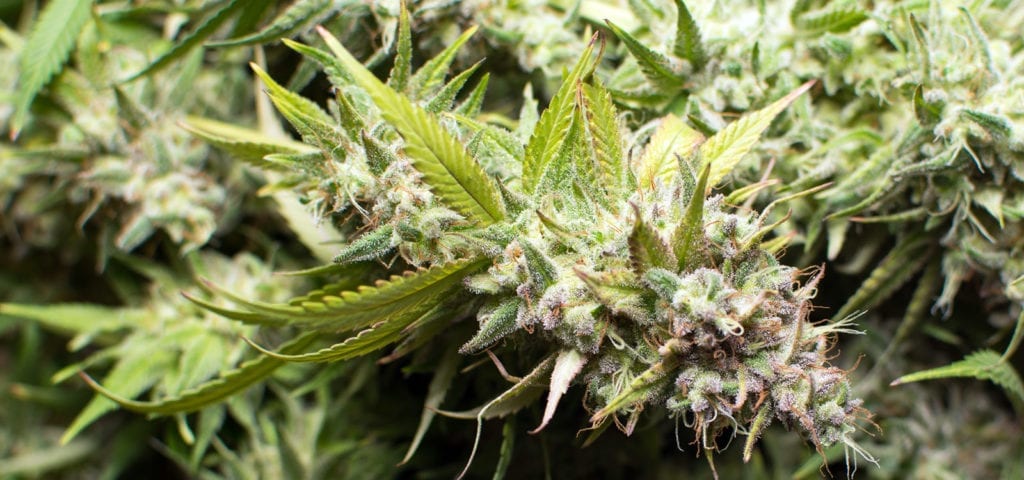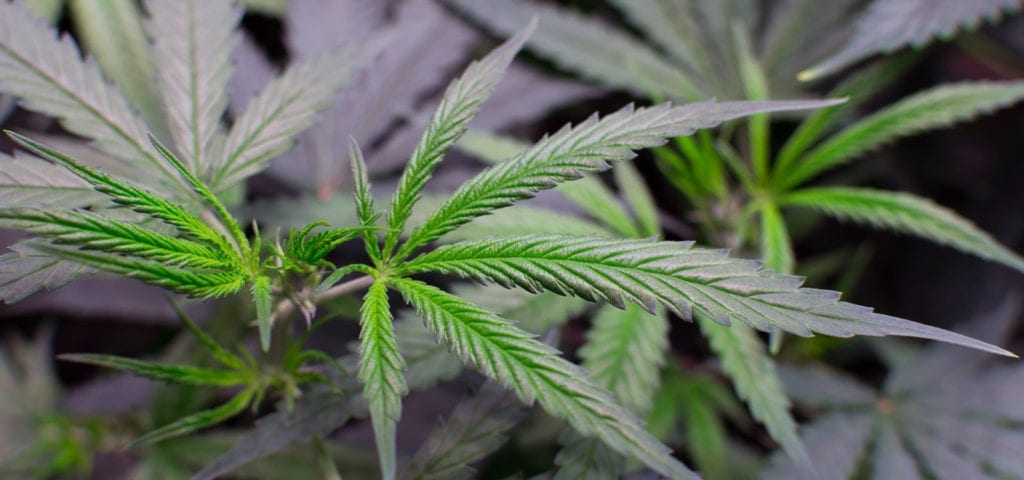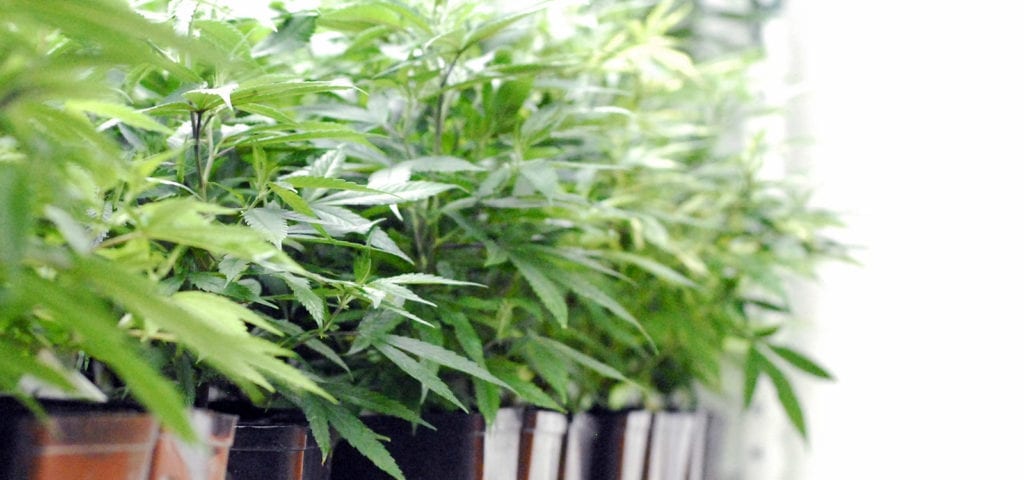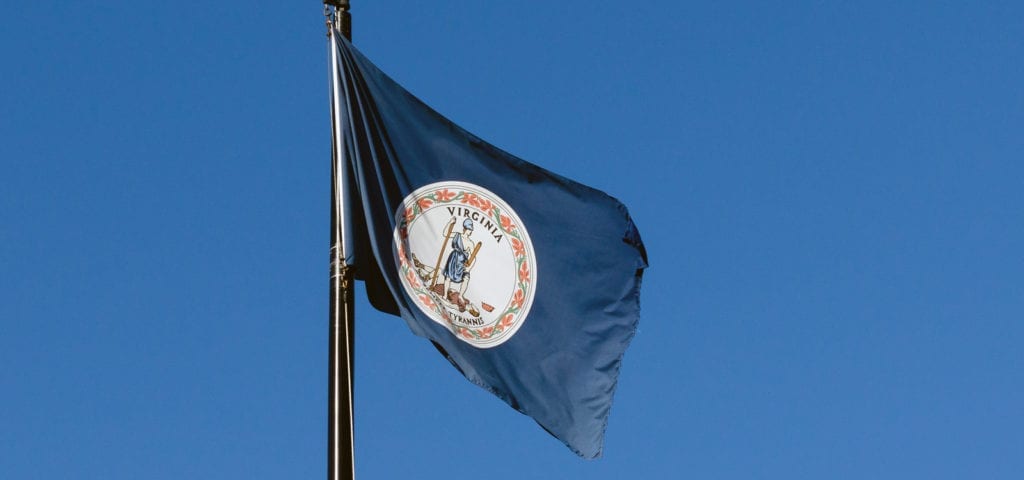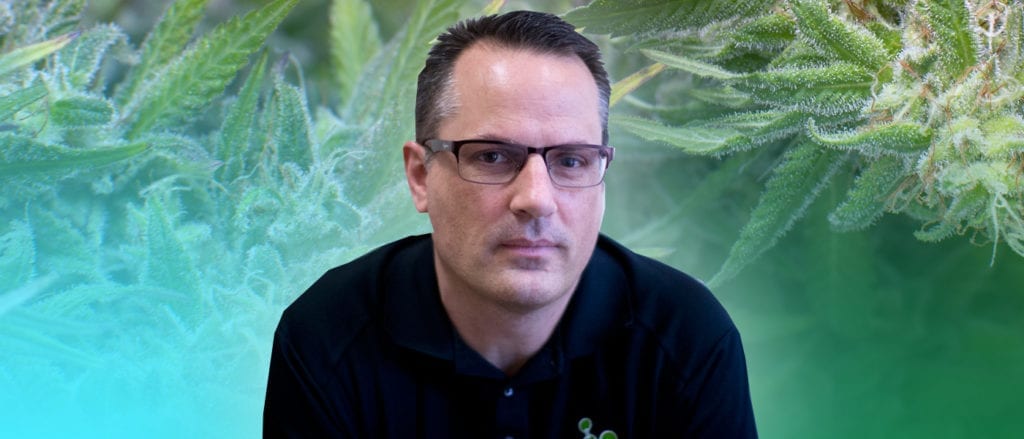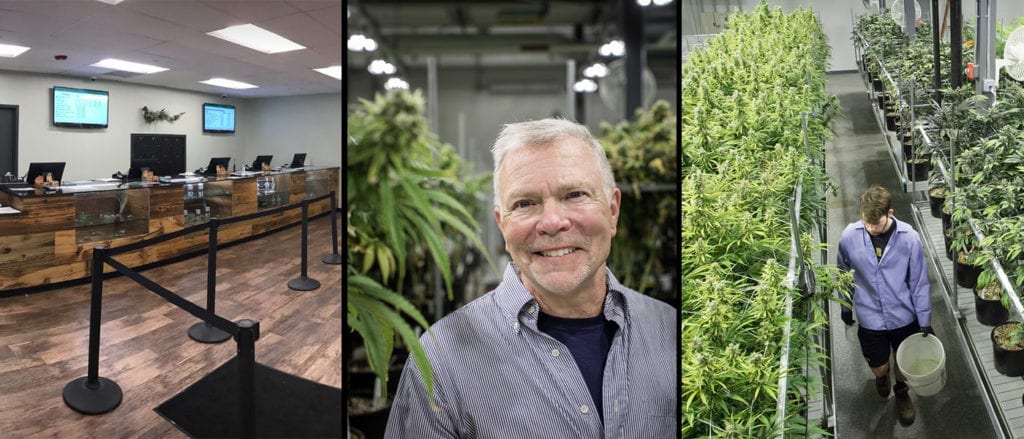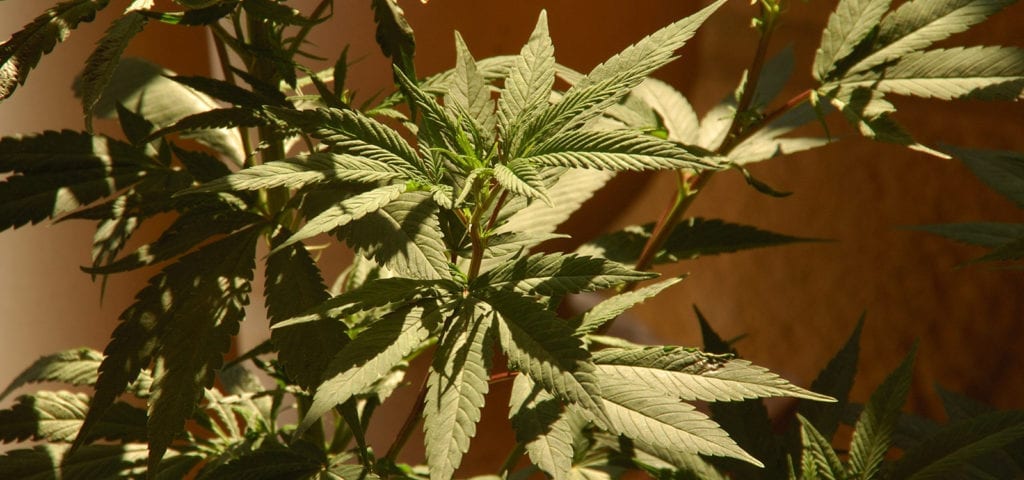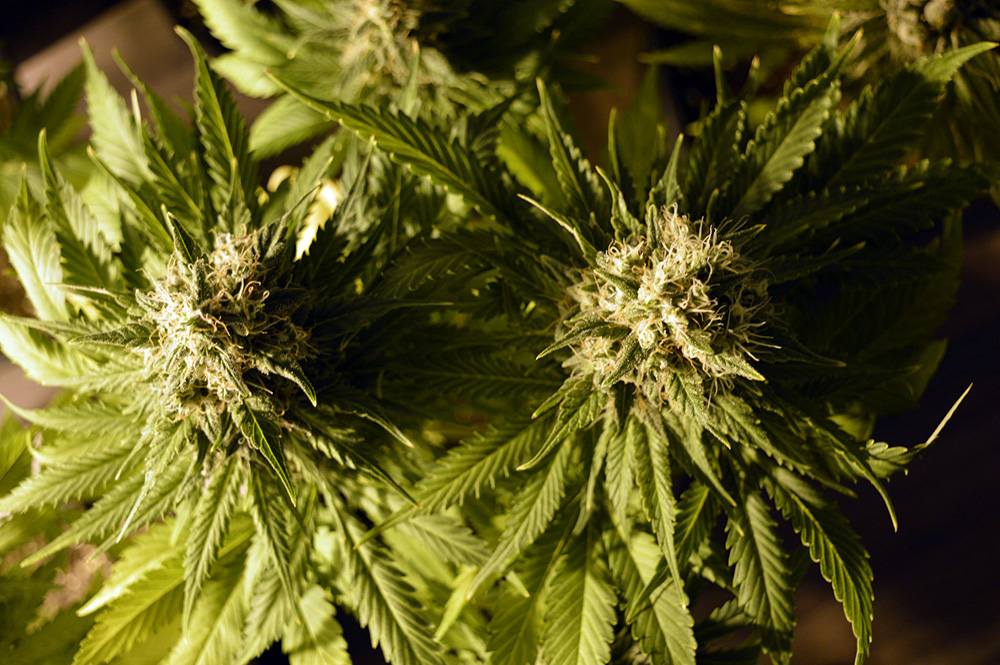Vanessa Corrales is the founder of San Diego, California-based B-Edibles, an infused edibles manufacturer that creates infused sugar products and is particularly well-known for offering medicated cotton candy.
This Ganjapreneur.com podcast episode features Vanessa and our host TG Branfalt in a discussion about how being a medical cannabis patient led to Vanessa pursuing a career as a medical cannabis entrepreneur and how B-Edibles’ bubbly and colorful branding plays to her desire to express uniqueness and her own personality in the cannabis space. The interview also covers a brand new project that Vanessa has taken up that is aimed at bringing a modern education about medical cannabis and the truth behind cannabis culture to native Spanish-speakers — and much, much more!
Listen to the interview via the player below, or you can keep scrolling down to read a full transcript of this Ganjapreneur.com podcast episode.
Listen to the podcast:
Read the transcript:
TG Branfalt: Hey there, I’m your host, TG Branfalt, and you’re listening to the Ganjapreneur.com podcast, where we try to bring you actionable information to normalize cannabis through the stories of ganjapreneurs, activists, and industry stakeholders. Today, I’m joined by Vanessa Corrales, founder of B-Edibles out in San Diego. How are you doing today?
Vanessa Corrales: Hi. I’m doing great, thanks for asking. Thanks for having me today.
TG Branfalt: Oh, it’s a pleasure. I’m real excited to get to know you, get to know your products, but before we get into the products and B-Edibles, tell me about yourself, you know. What was your path to getting involved in the cannabis space?
Vanessa Corrales: Excellent. Yeah, so cannabis … It’s funny to hear all the stories that people have and what brings them to the cannabis space. I come from a background of food and beverage. I’ve managed hotels, I’ve been part of opening teams for restaurants, I’ve managed local breweries and local coffee shops, as well, here in San Diego. I really wanted to dive into the food side of cannabis with a twist of getting, also, the Hispanic aspect of it or bringing cannabis in Spanish and getting that Latino culture in there, because if my Spanish speakers are listening out there, we don’t have a lot of information of cannabis in Spanish. So, I know I wanted to jump into cannabis and my forte is food and beverage, so that’s where I kind of focused my energy on.
TG Branfalt: And that led you to the creation and formation of B-Edibles, where you make cotton candy, which, let me tell you, that’s a mind-blowing premise, cotton candy that’s medicated. So, tell me about coming up with the cotton candy idea.
Vanessa Corrales: Okay. So, being in the food and beverage background and being in the industry and managing restaurants, I’ve always looked at Australia for new and upcoming trends. Looking at Australia … Australia has fairy floss in everything. Fairy floss is the traditional name for cotton candy. It started as fairy floss. So, fairy floss was in everything, and I was just thinking, “Wow, we don’t have that here in the states.” So, I started a fairy floss company, not medicated, that was about a year and a half ago. I really thought, “Okay, this is awesome.” I never thought I was going to infuse cannabis into cotton candy, I mean, that’s mind-blowing to me just thinking about that, like really? Cotton candy and cannabis? Is that even a thing?
But, in order for me to really want to dive in into the cannabis industry and into this market, I knew that I needed to create a product that wasn’t a chocolate bar or wasn’t a brownie or a cookie because there’s already amazing companies doing that right now. So, I knew I needed to stand out and create a big boom, and say, “Hello, I’m here. I’m colorful and I’m proud,” and cotton candy just made sense.
TG Branfalt: I was really struck when I was thinking about this when we landed this interview and thinking about cotton candy in addition to how delicious it probably is, but as a delivery method, it’s got to have benefits over other edible methods, right?
Vanessa Corrales: Correct. So, because of the nature of cotton candy and how you consume cotton candy, it disintegrates, it completely melts on your tongue, so it acts a sublingual. You will immediately feel, well 15-20 minutes, you’ll feel the effects of it. For me personally, it’s amazing. If I want to smoke in public, I consume it, and a lot of people have the idea of cotton candy being a lot of sugar, “Oh my gosh, it’s so much sugar,” but it’s mostly air. When you spin sugar, the process of creating cotton candy, you use less than a tablespoon of sugar, the machine melts it, and it creates this big cloud of fluffy, sweet, infused-cannabis cotton candy. So, it’s really not a lot of sugar. But, when you consume it, you don’t need a lot of it to feel the effects of it.
TG Branfalt: So, tell me a little bit about your own medical cannabis use. You have a condition, endometriosis, and that’s not something I specifically see covered in many states, so can you give us an idea of what that is and how cannabis helps you and how you utilize it?
Vanessa Corrales: Absolutely. So, endometriosis is one of those diseases that, not a lot of people know about it, or not a lot of women talk about it. Endometriosis is … The tissue that lines our uterus, as females, begins to develop outside of our organs. So, it can develop in our fallopian tubes, in our intestines, in our appendix, wherever. It could travel to our brain. And that tissue is called endometrium, which is why it’s called endometriosis. It acts the same as the lining that we have in our uterus, so it sheds during the monthly menstrual cycle.
So, now you can only imagine, if that tissues travels to your intestines or to any other organ in your body, and every month it acts as your menstrual cycle and it starts shedding blood but there’s no place for it to release or to go, you start creating these pockets, these cysts, or these chocolate cysts, or these tumors, that have nowhere to go and that create this excruciating pain. I mean 24/7 pain, you can’t get out of bed, it causes nausea, crazy inflammation, and it affects a lot of women. A lot of women don’t talk about it because it’s one of those diseases that you don’t know about until 10 years later when it’s too late, and infertility kicks in, like myself. I suffer from infertility, I’ve had seven surgeries, I’ve had endometriosis in my large intestine, my small intestine, my colon, my appendix, fallopian tube, ovaries, everywhere, and the pain is ridiculous.
TG Branfalt: Unbelievable.
Vanessa Corrales: Of course, the doctors give you hormone therapy, and they give you all these medical narcotics. I was on Percocet and Dilaudid and Morphine for many, many years, and not once was I introduced to cannabis. And that has a lot to do with me being Hispanic and not being socially accepted in my culture.
TG Branfalt: So, how do you use cannabis? Do you smoke it, do you use edibles? What delivery method helps best with your symptoms?
Vanessa Corrales: So, an interesting thing with endometriosis, the main thing that doctors give you with endometriosis is a hormone therapy. They either give you Lupron, which is like a hormone replacement through an injection in your stomach, which creates blood clots. So, if you smoke cannabis, it increases your risk of blood clots, which is why I try to not smoke cannabis, because of that, because I’ve been through hormone therapy for many, many years. So, I like edibles, I like vaping, which is why I love the cotton candy because it’s that sweet tooth in me, and it’s fast-acting. I can really dose out how much I consume, as well, because it’s fast-acting.
TG Branfalt: Do you have any concern as a patient in California that the new rules will have a negative effect on the medical cannabis program currently in the state?
Vanessa Corrales: That’s an interesting question and a great question because the regulations were just given to us a few weeks ago and, of course as a medical patient that consumes cannabis on a regular basis, with the new proposed regulations you can only buy prepackaged edibles from all the manufacturers in packages of 100 milligrams, which, if you talk to a cancer patient or someone that suffers from seizures, 100 milligrams does nothing. I’m afraid that, as a manufacturer, it’s going to be an issue. For cotton candy, there’s no way for us to dose out 10 milligrams for patients, so cotton candy, I’m afraid, is not going to exist come 2018 with the new regulations.
TG Branfalt: That’s really, really unfortunate. Is there any light at the end of the tunnel with regard to these regulations because these are still proposals, right?
Vanessa Corrales: Correct, they’re still proposals. June 13th was the last day for the community to speak up and talk, give their opinion, regarding … But again, they’re just proposals, and we’re thankful for that. There’s still time to change all of these and I know there’s a lot of people working towards changing that, the dosage, and the details that are missing in these proposed regulations.
TG Branfalt: I want to talk to you a little bit more about the regulations in a little bit broader term, but before we do that, we’ve got to take a short break. This is the Ganjapreneur.com podcast, I’m TG Branfalt.
This episode of the Ganjapreneur.com podcast is made possible by Name.com, a global provider of domain name, web hosting, and email services. Every successful cannabis business needs an online presence, and every successful online presence begins with a domain. From your website to your email address, a good domain is easy for your customers to remember, it looks nice on a business card or billboard, and it reflects the true identity of the project it represents. It’s important to reserve your domain early on when you are starting your business, as you may find that the .com address for your preferred brand or concept has already been taken. If somebody has already purchased the ideal .com for your business, they might be willing to sell it, but if they aren’t, you may have to get creative with one of the new alternate domain extensions, such as .co, .club, .shop, or even .farm. Reserve your domain name today at Name.com/Ganjapreneur.
If you are a domain name investor or venture capital firm interested in acquiring, or advertising, premium cannabis domains, go to the Ganjapreneur domain market to browse a wide variety of names, including Strains.com, CannabisMedia.com, MJ.com, and countless others. Discover branding opportunities for your next startup, and learn about listing your premium domain names for sale at Ganjepreneur.com/domains. Sponsored by Name.com.
TG Branfalt: Welcome back to the Ganjapreneur.com podcast. I’m your host TG Branfalt here with Vanessa Corraless, founder of B-Edibles. So, before the break, we were talking a bit about the new rules, California’s, as they roll into rec. You had said that there’s a possibility that your product, the cotton candy, might not be available under the new regime. What are your plans if that happens?
Vanessa Corrales: So, I’ve been soul searching. I think, “Okay, so what’s going to happen?” I’ve been working so hard and diligently in creating a product that’s safe, the quality is there, people are like, “It is cotton candy?” I’m like, “Yes, but it’s still clean meds, we still lab test, and we still have a sweet, clean medication for people.” So, I started thinking, “Okay, so what can we do if cotton candy is out of the question, and still keep the integrity of what B is and the quality and the consistency behind B?” To make cotton candy, we first infused sugar, that’s what we do, we infuse sugar. So, that’s the new sect for B-Edibles, we are going to have infused sugar for the cannabis community that is lab tested, that can be micro-dosed.
We currently have sugar cubes that will be going out to the community, to, hopefully, dispensaries pretty soon. They’re micro-dosed at 10 milligrams each, lab-tested, all organic. I didn’t mention that earlier, but all of the products that we use, all the ingredients that we use, are 100% organic ingredients. No artificial flavors, no artificial colors, no preservatives or additives. So, I see B-Edibles as being the manufacturer of infused sugar, which is a staple in everyone’s home.
TG Branfalt: I love how entrepreneurs, man like … You guys are able to overcome almost any roadblock. “You’re not allowed to bank.” “Oh, we’ll make this service and-
Vanessa Corrales: You’re right.
TG Branfalt: “Have that service. We’ll form these coalitions.” I mean really, it’s really incredible, really heartening for me to see, especially when your product’s on the verge of not being allowed in California, which is sort of crazy. So, in California, where Latinos encompass the largest racial or ethnic group, legalization there provides a big opportunity to break old traditions, clear the path to have the industry dominated by others besides the white male. Women, they hold 36% of leadership positions in the cannabis industry. What does all this mean for Latinas? You had said earlier that there’s a stigma attached to it, I am not a Latina, so-
Vanessa Corrales: Are you sure?
TG Branfalt: So, could you explain … Could you explain to me what that stigma is and what legalization in California does mean for that segment of the population?
Vanessa Corrales: Absolutely. So, interesting. Here in San Diego, we’re so close to the border, we’re so close to Mexico, we’re 15-20 minutes away from Mexico, from a completely different country where cannabis or marijuana is still seen as this gateway drug that only tweakers use. I get seen as, “You’re going to Hell. You smoke cannabis, you’re a bad person. You should be in the streets begging. You’re worthless.” That is still the stigma surrounding it. No question about it. People still don’t use the word marijuana, my grandparents, my aunts, don’t use the word marijuana, really, out in public, because they don’t want to be that person talking about it. Being at the border, oddly enough, we don’t have the information out there yet, the information of, “Cannabis is okay. Cannabis is healing a lot of people. Cannabis is opening the minds of so many. We’re getting creative people and artists. Doctors are using it and lawyers are using it. It’s not just for a bad person.”
The opportunity that cannabis is giving in the cannabis community here in California to really shed the light, because, whether Mexicans like it or not, we as Mexicans follow what California does, or what the U.S. does. The U.S. is legalizing cannabis. So, now Mexico is going that path. The Senate just approved medical use in Mexico, which is insane, insane.
TG Branfalt: I’m just wondering what does the legalization mean for the Latina population?
Vanessa Corrales: For Latinas-
TG Branfalt: In California.
Vanessa Corrales: It’s amazing that we can enter this space without having a person, or established corporation or company, saying, “We male,” or “We Hispanics don’t have room in this.” There’s so much room for us Latinas to really spread the knowledge and the love and the … How can I say it? The passion that we have for this plant. It is giving us a platform to shine, because we are on the same level. It’s all the same playing ground for everyone. Me as a Latina woman and my neighbor and their neighbor, we all have the same ground, we can all be super successful in this industry, which … You can’t say that in other industries. That’s what cannabis brings to, not only the Latinas, but Latinos and other minorities, which is amazing that I am able to say that I am living and growing, and my career is growing and my passion is growing in this industry with this amazing community.
TG Branfalt: You had mentioned that your parents and grandparents don’t even mutter the word marijuana. What was their reaction when-
Vanessa Corrales: They didn’t understand.
TG Branfalt: You started this company?
Vanessa Corrales: They didn’t understand what I was talking about. I’m like, “I’m going to be working with marijuana.” They don’t know the word cannabis. Cannabis is not a thing in Mexico. I’m like, “Yeah, I’m going to work with marijuana.” They’re like, “What?” I kept saying, “Yeah, mota.” I’m not sure how more clear I can be. But, because … They didn’t. And do you know why they didn’t?
Maybe if it was another cousin. Maybe. I’ve been a girl that has always loved books, that is always in school. I graduated from college, and I’m one of the only cousins from my Mexico side that has been to college. So, they know that I wouldn’t make a crazy decision that wasn’t well thought-out, or that I would harm my family or myself. They didn’t disown me, I mean, they were a little confused and they did need a little education. All they know about marijuana is. “If you’re a bad person, you smoke it. You probably smoke it and then you also, probably do other drugs. You probably also rob people or do crazy other stuff.” So, when I was telling them, you could see their heads turning. You know, like a little puppy, when their head turns like, “I don’t understand.”
You know what the great thing about it, is that when I spoke to them about this project, and I started with cotton candy, it kind of broke the ice, which is what I love about cotton candy, is that it allows me to preach, per say. It allows me to talk cannabis without, really, that wall of, “Oh, no, no. I don’t want to talk about cannabis.” It really broke the barrier. It’s like, “Oh, cotton candy? What? Tell me more. How does this work?” Then, it allows me to educate them, which, at the end of the day, if we don’t educate our community, if we don’t educate and pass that knowledge of what we know … Again, we don’t know much in this community because we’re writing the laws, we’re doing the research, we’re doing everything right now, but if we don’t spread the knowledge that we currently have, there’s no way that we’re going to break the stigma.
The Mexican culture is really stubborn. So, when you come to it with a very bubbly and colorful way, and being a female that they don’t really expect that, they really embrace it and they open their ears and they open their mind and their heart, which is amazing to me. I really didn’t think that they were going to be okay with it. I was going to do it regardless, but it was great. It’s been great.
TG Branfalt: As we’ve been talking, and I said this to you during the break that, you’re a very bubbly personality. And the photos of you, you have multicolored hair. So, how important was it to you for your brand to represent that bubbly, colorful personality?
Vanessa Corrales: It was everything. It absolutely was everything. When I first decided that this is the path that I was going to take, I really struggled with what did I want to call it, how was the feel and the colors. Because, what was out in the market at that time, I really didn’t identify with anything and I really wanted to scream individuality and to be colorful and to be unique. Working in food and beverage and working in restaurants and hotel, whoever is listening that has been in that industry, you have to be a certain way, you have to talk a certain way, you have to dress a certain way. I really wanted to step away from that. I wanted to embrace people’s individuality, but I also really wanted to bring color to the cannabis community by really pushing about being yourself.
I kept on telling myself, “I don’t know what I want to call it, I just want it to be colorful. I want it to be unique, I want it to be love, I want it to be creative.” I kept on saying this, I’m like, “I just want it to be.” Literally. I just want it to be. So, I kind of just stuck. Some people are like, “Oh, it’s ‘Bedibles.'” I’m like, “Well, sure. If you want it to be ‘Bedibles,’ sure.” But, it’s about being B, and that’s the beauty about B, it can be whatever you want it to be. Bubbly, serious, creative, you could be elevated, you could be high, you can be whatever you want to be, and that’s what cannabis does to me personally, as an individual, as a medical marijuana patient. It allows me to be myself and that’s why I love cannabis.
TG Branfalt: So, you sort of had, the, what you wanted …
Vanessa Corrales: Correct, absolutely. 110%
TG Branfalt: What message you wanted the business to have before you had the product.
Vanessa Corrales: Is that weird?
TG Branfalt: That’s really kind of shocking. It is sort of weird. I mean, in my experience, I’ve done dozens of these interviews, and nobody has said to me, “Yeah, I knew what I wanted to call it and I knew what message I wanted it to have before I knew what I was actually going to make.” No, that’s … So, you’re unique even in that way. I want to switch gears a little bit, move back a little bit. We were talking about California, and California’s really interesting as they go into legalization because of the equity provisions that are being outlined, not just by the-
Vanessa Corrales: Right.
TG Branfalt: State legislation, but also by individual legislation in San Francisco and Oakland. They were putting together equity provisions for the industry months before. They knew it was coming. Do you think that those equity provisions in cities like San Francisco and Oakland, do they do enough to remove the barriers to entry for minorities in California?
Vanessa Corrales: I mean, if you talk to the Latina in me, I’m going to say it’s never enough. But, it’s a start. And I’m thankful and I’m happy that we’re at least starting somewhere. I know the equity details in Oakland and San Francisco, I’m not super familiar with them, but I know that there’s … 50% go to minorities with convictions and some income thresholds, or something like that.
TG Branfalt: Yeah.
Vanessa Corrales: Am I correct saying that?
TG Branfalt: Yeah.
Vanessa Corrales: Yeah. And I know that there is very little written in the proposed regulations for us over here. Again, I think whatever we do to move towards that is amazing. We have to put it in writing. These social equities need to be in writing because it is true, it is a fact that we are the minority. But, like I said earlier, we are on a level playing field. We need to get out there as Spanish speakers, as Latina and Latinos, we need to get out there and really talk to other people and spread the knowledge in order to get where we want cannabis to be. These social equity programs are only going to help us get there.
TG Branfalt: Well, I want to talk to you, too, a bit more about what other products you’ve got in the works. Before we do that, we’ve got to take our last break. This is Ganjapreneur.com podcast. I’m TG Branfalt.
At Ganjapreneur, we have heard from dozens of cannabis business owners who have encountered the issue of canna-bias, which is when a mainstream business, whether a landlord, bank, or some other provider of vital business services, refuses to do business with them simply because of their association with cannabis. We have even heard stories of businesses being unable to provide health and life insurance for their employees because the insurance providers were too afraid to work with them. We believe that this fear is totally unreasonable and that cannabis business owners deserve access to the same services and resources that other businesses are afforded, that they should be able to hire consultation to help them follow the letter of the law in their business endeavors, and that they should be able to provide employee benefits without needing to compromise on the quality of coverage they can offer.
This is why we created the Ganjapreneur.com business service directory, a resource for cannabis professionals to find and connect with service providers who are cannabis-friendly and who are actively seeking cannabis industry clients. If you are considering hiring a business consultant, lawyer, accountant, web designer, or any other ancillary service for your business, go to Ganjapreneur.com/businesses to browse hundreds of agencies, firms, and organizations who support cannabis legalization, and who want to help you grow your business. With so many options to choose from in each service category, you will be able to browse company profiles and do research on multiple companies in advance, so you can find the provider who is the best fit for your particular need.
Our business service directory is intended to be a useful and well-maintained resource, which is why we individually vet each listing that is submitted. If you are a business service provider who wants to work with cannabis clients, you may be a good fit for our service directory. Go to Ganjapreneur.com/businesses to create your profile and start connecting with cannabis entrepreneurs today.
TG Branfalt: Hey, welcome back to the Ganjapreneur.com podcast. I’m your host TG Branfalt here with Vanessa Corraless, founder of B-Edibles. So, you had mentioned, before we got started, that you’re working on something in Mexico. Why don’t you tell me about that endeavor. I’m sure there’s not a whole lot of people working out there yet, so why don’t you give us an idea of what’s going on.
Vanessa Corrales: Oh my gosh. Just thinking about me talking about it with you is amazing. I’m getting little tinglies all over my body. Because we have no information out there in Spanish, which is why I’m super passionate and super excited about this project. So, it’s Cannabis En Español, which is a platform of blogs, video blogs, or vlogs, and a website, that brings articles that are currently written in English translated into Spanish, as well as a blog by me, and a vlog by me as well, in Spanish, talking about cannabis, talking about what’s going on.
TG Branfalt: That is genius.
Vanessa Corrales: We don’t have that, and how are we going to get our community, our Spanish-speaking community, to really embrace this cannabis movement? Because, there’s a shit-ton of us out there, right? Our schools teach in Spanish. Why aren’t we teaching in Spanish over here? So, I was super excited to be part of the first cannabis, or club cannabico, the first cannabis club in Tijuana last week. It just came from the sky. I was contacted by a doctor that researches the endocannabinoid system in Mexico, he was an old friend of mine. He said, “We’re doing this cannabis meeting, the first one. We’re just going to get together and see what’s going on. What do we want to do, where do we want to take this?” I got invited and it was the most surreal thing. We were in this beautiful home in Mexico, I was surrounded by 11 men, and I was the only female there.
TG Branfalt: Wow.
Vanessa Corrales: It was just insane. It was amazing. I felt just … In shock, and in awe, and happy with life at that moment, saying, “Yes, we are doing this. Yes, this is happening right now.” Mexico … You have cartels and narcotics and the war on drugs, that’s all we think and breathe over there, which is crazy, and that’s all that the news tell us. So, I was so happy to be part of this group of men, and I was so happy that they included a woman to go there and to be part of the movement. I was just ecstatic. So, Cannabis En Español, and the club has its own name, they don’t want to release the name yet because, again, legal implications in Mexico currently. They’re trying to get all that squared away, but it’s coming and it’s going to bring a lot of cool stuff to our Spanish speakers over here.
TG Branfalt: So, what sort of issues came up in this meeting?
Vanessa Corrales: So, first of all, because we’re at the border, most of them come to San Diego, cross the border frequently, like myself. So, we sat down and like, “Okay, well this is what we want to do. We want to inform our people, we want to get the community together, we want to show that cannabis, or marijuana … I say marijuana because cannabis isn’t a word that is used in Mexico yet.
TG Branfalt: Okay.
Vanessa Corrales: So, we’re like, “Okay, what are we going to do with marijuana?” Oh my gosh. I was a little … hearing this word right now, this is so cool. But, we were talking about, “Okay, how are we going to get the community together? How are we going to get the community to see us, this group of crazy ass people trying to create this movement of ‘Cannabis is safe. It’s not a gateway drug?’ How are we going to get the community to really see us as legit? Not just a group of people that just want to smoke all day.” That’s not what we are. So, they had some ideas that they were proposing to the group that was there, “We’re going to get people together. Because it’s still super illegal in Mexico, it’s invitation only. We’re going to clean beaches, and we’re going to do private events. We’re going to go on radio and do interviews in Spanish and help the community. Feeding the homeless, feeding foster care kids.” There’s just a list of things. “Doing concerts to raise funds to help this community and to help this nonprofit.”
The range of people that were in this meeting, we had someone that works at a radio station, we had some lawyers, we had doctors, we had a few artists that paint and some others that do digital art. We just had such a unique dynamic going, and then me that brought that feminine side of cannabis. When I was talking to them … And I started with not only men smoke weed. They kind of looked at me like, “Yeah, I guess you’re right.” I just started talk to them. “We need to start talking about marijuana to women, to moms, to ladies that are going, maybe, through endometriosis, or through infertility, or through this pain.” It was just amazing. I am very, very happy and excited for this project and to bring it to the community.
TG Branfalt: So, where can people find this blog? What’s the web address for the blog?
Vanessa Corrales: So, it’s CannabisEnEspañol.org or CannabisEnEspañol.com is the URL that we have. Again, we’re barely recording and starting it next week, so it’s literally in it’s infancy. We’re barely starting. I have some awesome collaborations that are coming together, some marketing gurus here in San Diego that really want to invest in this project, that have very, very big rapport. Some videographer up in Oceanside that volunteered their time, as well, to record them. It’s just coming together so beautifully, and that’s something that I really love about this cannabis community, is that we’re all about collaboration and really spreading the love, that I do not see in other industries.
TG Branfalt: That’s a really super cool idea. As somebody who … I try to cover international news as I can, but I can’t speak Spanish. So, when I see what’s going on in Mexico or other Spanish-speaking countries, it’s not as well covered in the U.S. media and I mean, sometimes, we have to rely on sketchy translations. So, it’s sounds like a really, really great project, even for us members of the media who want to stay on top of international cannabis news.
Vanessa Corrales: Absolutely. I was talking to other websites like Medical Jane, and talking to them about the project, just because they have a lot of articles, to see how we can collaborate and get those articles translated. We have doctors in Mexico that would back up any translations. Obviously, when I translate some of the articles, you don’t know what bullshit I can be saying, right? So, we want to make it as transparent and as truthful to the original article, or whatever it is that we’re translating, and the information that we’re giving in Spanish. We really want to make it as clear and the best information as possible, out there. Obviously free for the Spanish-speaking community.
TG Branfalt: Well, that’s really exciting stuff. I’m really stoked to see how … As you said, it’s early, to see how it all comes together for you. Finally, where can people find out more about B-Edibles, about the company that you’re currently operating?
Vanessa Corrales: So, our Instagram is @bedibles or ‘bedibles’ like a lot of people like to call it.
TG Branfalt: So no dash?
Vanessa Corrales: No dash on our Instagram, but we do have a dash on our website, which is www.B-Edibles.com. Yeah, that website is in the process of being revamped, but you currently can go there and see the bubbly colors that B-Edibles is and probably a picture of me and my colorful hair, too.
TG Branfalt: Well, I want to thank you so much for taking time to appear on the show. You’re a really fantastic resource and taking a point position on trying to educate Spanish speakers and your own culture on cannabis, that’s a huge project to undertake.
Vanessa Corrales: Yes.
TG Branfalt: It’s really incredible that somebody’s doing it. So, thank you so much for being on the show and taking on that responsibility.
Vanessa Corrales: Thank you, thank you. I think that any person in the cannabis industry really has a lot of passion and it’s on us. We are the ones getting all this knowledge, we are the ones writing all these laws. So, it’s on our backs to really put all this information out there for people, the correct information, out there, and the correct image out there to the community. And cannabis is about being unique and it’s about embracing individuality, and we need to do that. That’s what I’m trying to do.
TG Branfalt: Well, again, I thank you for coming on the show and we’ll keep an eye out for the new site for sure.
Vanessa Corrales: Absolutely. Thank you so much for having me, it was a blast.
TG Branfalt: You can find more episodes of the Ganjapreneur.com podcast in the podcast section of Ganjapreneur.com and in the Apple iTunes store. On the Ganjapreneur website, you will find the latest cannabis news and cannabis jobs updated daily, along with transcripts of this podcast. You can also download the Ganjapreneur.com app in iTunes and Google Play. This episode was engineered by Jeremy Sebastiano, I’ve been your host, TG Branfalt.









